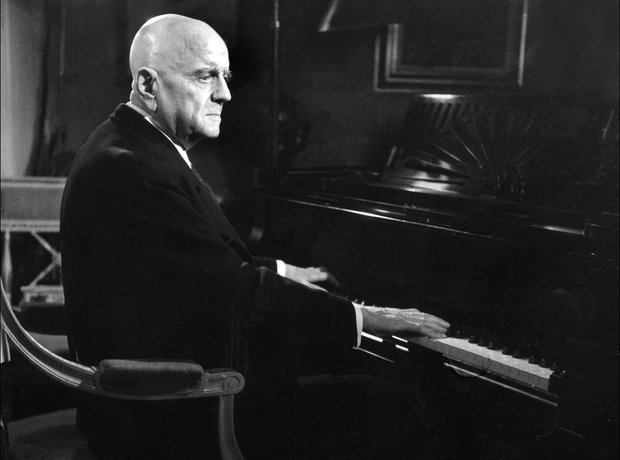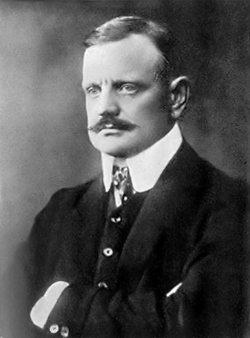Jean Sibelius, born Johan Julius Christian Sibelius on December 8, 1865, in Hämeenlinna, Finland, emerged as one of the most prominent figures in classical music during the late 19th and early 20th centuries. Renowned for his symphonies and tone poems, Sibelius’s compositions are imbued with the essence of Finnish landscapes and folklore, earning him the title of “National Composer” of Finland.
Sibelius’s musical journey began in his childhood, where he exhibited a keen interest in music. His family, of Swedish-speaking Finnish descent, recognized his talent early on and provided him with the necessary support and education. At an early age, he learned to play the violin and piano, laying the foundation for his future career as a composer.
In 1885, Sibelius enrolled at the Helsinki Music Institute (now known as the Sibelius Academy), where he studied composition under the guidance of Martin Wegelius. During his time at the institute, he delved deep into the works of classical composers such as Beethoven, Tchaikovsky, and Wagner, whose influence would later manifest in his own compositions.
After completing his studies, Sibelius embarked on a journey to establish himself as a composer. His breakthrough came in 1899 with the premiere of his tone poem “Kullervo,” based on the Finnish epic poem, the Kalevala. The piece garnered widespread acclaim, not only for its musical brilliance but also for its portrayal of Finnish national identity.
Throughout his career, Sibelius remained deeply connected to his Finnish roots, drawing inspiration from the country’s rugged landscapes, mythology, and folk melodies. This connection is evident in works such as “Finlandia,” a tone poem that served as a rallying cry for Finnish independence during a period of Russian censorship.
However, it was Sibelius’s symphonies that solidified his legacy as one of the greatest composers of the 20th century. His seven symphonies, composed between 1899 and 1924, showcase his mastery of orchestration and form. Each symphony is a testament to Sibelius’s ability to evoke profound emotion and convey the grandeur of the Finnish landscape through music.
Despite his success, Sibelius’s later years were marked by personal and artistic struggles. A combination of financial difficulties, health problems, and self-doubt led him to retreat from the public eye. In 1926, he ceased composing altogether, entering into a period of self-imposed exile that lasted until his death.
Jean Sibelius passed away on September 20, 1957, leaving behind a rich legacy of music that continues to inspire audiences worldwide. His contributions to Finnish culture and classical music are celebrated to this day, with his compositions revered for their beauty, depth, and profound connection to the Finnish spirit. Jean Sibelius remains a towering figure in the pantheon of classical composers, forever immortalized as the Maestro of Finnish Symphonies.


Comments are closed